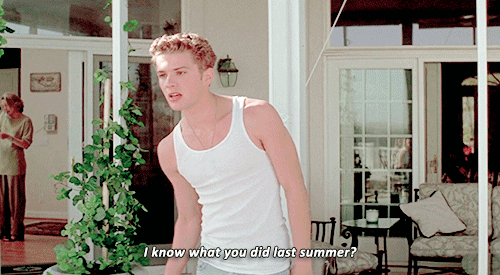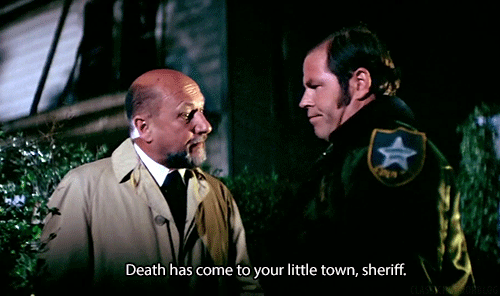
Halloween season: It’s the only thing that can convince me to accept the fact that summer is over. My autumn anxiety is soothed by brainstorming costume ideas, eating too much candy corn, and ticking off titles on my list of horror movies to enjoy before the 31st.
If you’re a fellow horror fan, you know that one of the most frustratingly enjoyable parts of watching a new horror flick is seeing how directors play with the genre’s many tropes. Even if you’re new to horror, you’d likely recognize some of these conventions—the jump scare or the final girl, for example.
Sadly, horrors are not confined to the movie screen. The fragmentation and complexity of digital media, combined with the point solutions many marketers use to manage that complexity, can make navigating the space feel like trying to escape a haunted house. And while I have a love/hate relationship with watching horror tropes unfold on screen, I have no love at all for watching digital marketers trip over stumbling blocks that are entirely avoidable.
But never fear: If you’re an adtech user looking to avoid such horrors, this post will help you steer clear of four big ones. Just think of me as the friendly neighbor who, upon hearing that you’re thinking of purchasing a certain decrepit mansion that goes on the market every few years, refers you to a different realtor.

Even if you’re not a horror fan, you’ve probably heard the famous “Jaws” quote, “You’re going to need a bigger boat.” In the movie, a police chief, an oceanographer, and a pro shark fisherman set sail to find and kill a deadly shark. There’s a turning point in the movie when the trio lays eyes on the shark for the first time, and... well, it’s a lot bigger than any of them expected. Despite the police chief’s reasonable request that they go back and return with a bigger boat, the ego-driven fisherman insists they pursue the shark with their limited equipment. (Spoiler alert: neither the fisherman nor the boat in question survive).
In the advertising world, digital marketers often set up ambitious campaigns without using all the tools available to them. There’s nothing more terrifying than seeing a well-thought-out campaign with killer creative go live without taking advantage of all the resources available to optimize it, including time- and money-saving features like:
All no-brainers, right? Tap into all the optimization features available to you, and your campaign has a considerably better chance of reeling in the big fish—without capsizing.

Not getting a bigger boat, drinking on the job—who hired this man?!

The horror trope I personally find most frustrating is when the protagonists decide to split up in the process of trying to escape and/or defeat the villain. Apparently, a significant percentage of horror movie protagonists never heard the phrase “safety in numbers.” This poor decision-making plagues characters in films like “Fright Night” and “The Cabin in the Woods,” plus an alarmingly high number of Scooby-Doo episodes.
Sadly, similar missteps sometimes pop up in the advertising world—particularly when it comes to conversion-based campaigns. Conversions, as advertisers know, are kind of the holy grail of marketing. However, in today’s increasingly complex media environment, tracking those conversions can be a challenge.
Cross-device ad targeting allows marketers to not only reach users across their many devices, but track user activity across all of them—so if Jill sees your ad on a CTV device, but converts via her mobile phone, you still get credit for that conversion.
Moral of the story? If you’re running a conversion-based campaign, don’t be the group that splits up! When the whole team works together (read: when you enable cross-device), there’s no enemy you can’t vanquish (read: conversion you can’t track).

After 40 episodes, Fred never learns.

If you work in advertising, you’ve probably heard the “right time, right place” adage more times than you can count. And, like in advertising, timing is a critical factor in scary movies because it creates suspense. In “I Know What You Did Last Summer,” for instance, there’s an almost three-minute-long chase scene where one of the protagonists, Helen, is trying to escape from a hook-wielding assailant. At the end of the chase scene, she’s so close to safety...but her decision to hesitate for just a second seals her fate.
In digital advertising, timing is especially important when it comes to retargeting. It’s a strategy that delivers strong results for awareness, site traffic, and conversion rates alike—but when done thoughtlessly, it can haunt consumers rather than reach them in the right moments. Imagine purchasing a new car, for instance, and then being followed by automotive ads for months on end. It’s not only annoying for consumers, but a waste of ad spend for media buyers.
To avoid this horror, marketers should think through retargeting timeframe rules in relation to whatever product they’re running. If you’re advertising for a coffee brand, then sure: retargeting daily might make sense. For larger and more infrequent purchases, however, marketers should probably not retarget converted customers quite so soon.

Our retargeting campaign knows that you purchased a gym membership last summer, and we’re here to suggest a different option before you renew...

Prepare yourself, because this last adtech horror might legitimately give you a bit of stress. But first, the corresponding trope: the character that’s in denial. I’m talking about those singular characters who have the power to do something about the antagonizing murderer/monster/ghost, but refuse to believe the threat exists until it’s too late.
A classic example? Sheriff Brackett from “Halloween.” When the sheriff is warned about an escaped murderer wreaking havoc around town, he scoffs, telling the character warning him that “I have a feeling you’re way off on this.” As with many other non-believers in the horror canon, karma ensures that the sheriff is ultimately punished for his failure to act.
You probably know where I’m going with this one, right? Yup: it's time to talk about third-party cookie deprecation. I know, I know, cookie loss has been delayed until next year (after previously being delayed to 2022, after previously being delayed…) But consumers and regulators alike want marketers to transition to more privacy-friendly targeting methods ASAP. Right now, advertisers have the opportunity to explore a world of existing privacy-friendly advertising solutions, rather than being forced to implement them without any prior experience. So even if you’re not in denial about third-party cookie loss, it pays not to procrastinate.
Don’t be a Sheriff Bracket: start testing and learning with solutions like contextual and geo-based targeting now! By getting a head start, you’ll protect yourself from falling into the bucket of digital advertising procrastinators who risk karmic punishment (or just old-fashioned, non-karmic consequences from consumers and regulators, which might actually be a scarier prospect!).

The death of third-party cookies, that is...
While dabbling with tropes is a horror director’s birthright, marketers must learn from the mistakes others have made. To that end, I hope this post has scared you enough that you steer clear of the media missteps outlined above!
Another terrifying prospect for marketers? Not being up to date on the latest digital marketing news and developments. Luckily, we’ve got a team of digital marketing experts working around-the-clock to bring you the best digital marketing content and news. Sign up for Basis Scout to get it all delivered straight your inbox each month!